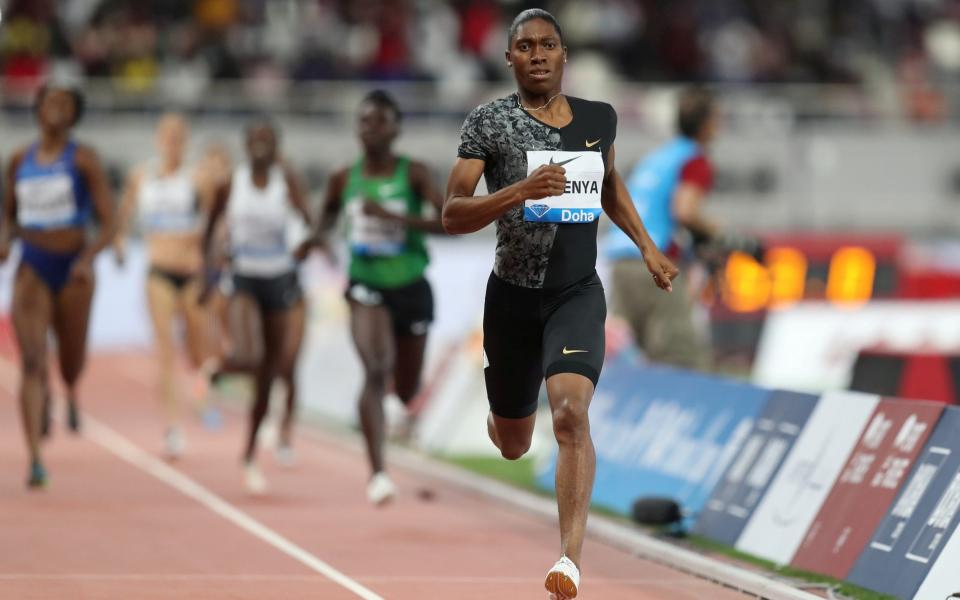Caster Semenya likely to race in 5,000m at World Championship while appeal process continues

The likelihood of Caster Semenya competing over 5,000metres at the World Championships has increased after her team confirmed she will be racing longer distance while South Africa appeals against the recent ruling on testosterone-reducing drugs.
Semenya had already confirmed on Monday that she will race in the 3,000m at next month's Diamond League Prefontaine Classic. The double 800m Olympic champion is likely to be forced to surrender the chance to defend her 800m world title this autumn despite South Africa confirming it will launch an urgent appeal against the landmark ruling in Switzerland.
However, Gregory Nott, one of Semenya's legal representative, told Telegraph Sport it was "safe to say" she would now racing beyond 3,000m while the latest stage in her legal saga is resolved.
Semenya, 28, has repeatedly said she will not take medication to comply with the rules, and will be an underdog in a stellar Diamond League field that is expected to include world 5,000m champion Hellen Obiri, 2016 world indoor 1500m champion Sifan Hassan, and 2018 world indoor 1500m and 3,000m champion Genzebe Dibaba.
Last month Semenya beat Olympian and defending national 5,000m champion Dominique Scott at the South African championships, winning in a time of 16 minutes 5.97 seconds.
However, Scott said she was unsure if Semenya could be a serious Olympic or World Championship contender over the longer distance.

"Honestly‚ I have no idea‚" said the 26-year-old. "Before today, I probably would have said no. It's hard to compare a 5,000 at altitude to a 5,000 at sea level."
Next month's race will be her first since the rules came into effect on May 8 and comes as her nation's sports minister lodges papers at Switzerland's Federal Tribunal based on complaints that the Court of Abitration for Sport had demonstrated lack of clarity over how the ruling could be implemented.
The International Association of Athletics Federations (IAAF) had set a deadline of two weeks ago for DSD athletes to submit samples showing a testosterone level below five nanomoles per litre, which they must maintain over the next four-and-a-half months.

The IAAF has been criticised for the rules, with allegations that the science is flawed, regulations ethically dubious and potential medical side-effects unknown. The World Medical Association (WMA) have urged their member physicians in 114 countries not to assist in the implementation of the regulations.
In response, the IAAF has written to the WMA, saying the rules have been developed after "many scientific publications and observations from the field during the last 15 years".
One option thought to be available to Semenya is to fight the ruling on human rights grounds, but the IAAF has said it is not subject to such laws as it "is not a public authority, exercising state powers, but rather a private body exercising private (contractual) powers".
Dr Seema Patel, a supporter of Semenya's at Nottingham Law School, says her grounds for appeal remain "very limited".

 Yahoo News
Yahoo News 